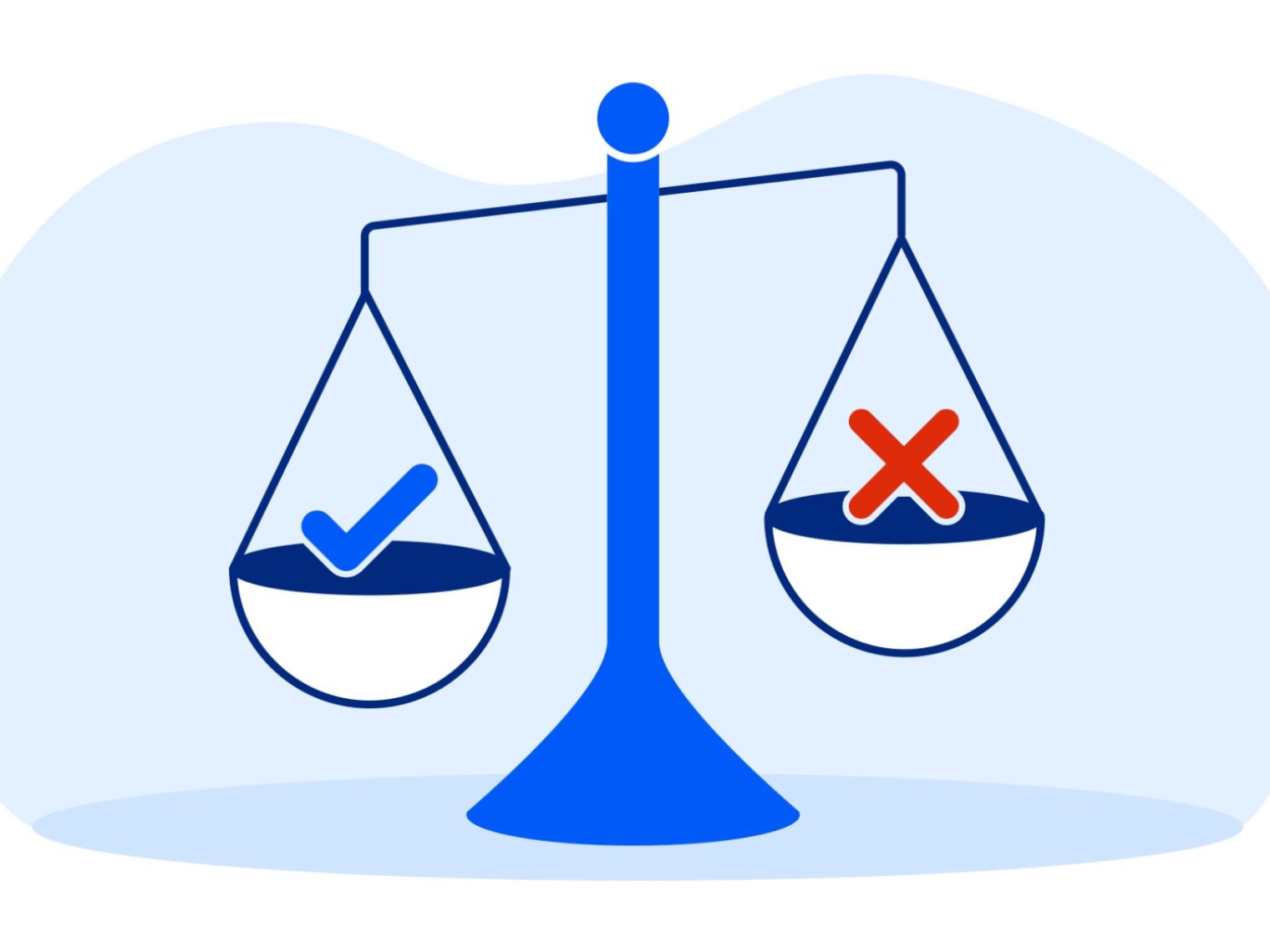- Veterans can secure a VA loan with bad credit, but it depends on a host of factors.
- Compensating factors like minimal debt, long-term employment and high residual income can help offset a lower credit score.
- Veterans United has a credit consulting team that can help Veterans improve their credit.
Veterans and service members may have what's considered “poor” or “bad” credit and wonder if they can still use their VA home loan benefit. It’s important to understand the VA doesn't set credit score requirements. In fact, the VA doesn't mandate a minimum credit score at all.
The ability to obtain a VA loan with bad credit is determined by the specific credit requirements of each individual VA lender. Let’s take a closer look at how lenders may assess your poor credit and risk when applying for a VA loan.
Can You Get a VA Loan With Bad Credit?
The short answer is yes, it’s possible to get a VA loan even if you have bad credit. Since the VA does not set a minimum credit score for VA loans, it is ultimately up to the lender and their credit score requirements.
Many lenders consider credit scores below 620 as “bad credit.” Some lenders may approve borrowers with scores in the 500s or even no credit history, provided they meet other financial requirements.
At Veterans United, we require a 620 FICO® credit score minimum in most cases. However, Veterans who aren't quite ready score-wise can work with one of our credit consultants to develop a plan to boost their credit and get on the path to VA loan preapproval. We offer this complimentary, no-obligation service to help Veterans achieve homeownership.
What is Considered “Bad Credit” for a VA Loan?
The first issue is tackling unclear phrases like "bad," "poor" or "less than perfect" credit. We use that kind of language since it can be tough to discern what constitutes "good" credit or at least a credit score that can get prospective buyers closer to the dream of homeownership.
Credit scoring firm FICO defines "Fair" credit as scores from 669 to 580, with anything below designated as "Poor" credit. But one lender's definition of bad or subprime credit can be very different from another's.
Across the spectrum of VA lending, a 620 FICO score is a common credit score minimum. But that benchmark can be higher or lower depending on the lender, the economic environment, how much you're hoping to borrow and more.
The table below highlights the number of VA purchase loans originated in 2024, categorized by credit score. While most loans go to borrowers with higher credit scores, thousands are still approved for those with scores below 620.
VA Purchase Loans Originated By Credit Score
| Credit Score | Originations |
|---|---|
| < 620 | 14,421 |
| 620 to 639 | 18,379 |
| 640 to 679 | 44,889 |
| 680 to 720 | 49,591 |
| > 720 | 171,927 |
This is encouraging news for Veterans and active-duty service members with lower credit scores. It demonstrates that securing a VA loan is possible, even without a perfect credit history.
Bad Credit May Not Be the Only Hurdle
Veterans who've experienced bankruptcy, foreclosure or a short sale might face unique homebuying challenges beyond the substantial hit to their credit score.
Negative credit events typically require waiting periods, also called seasoning periods, during which Veterans are generally unable to close on a home loan. The length of these periods varies based on the type of event and the loan you're seeking.
Generally, VA loan waiting periods are shorter than conventional mortgage ones. But much like credit score minimums, guidelines on seasoning periods can vary by lender.
Compensating Factors for Bad Credit
If your credit score is on the lower end, VA loan underwriters may see if you meet any "compensating factors." These factors can help offset concerns and weaknesses in a buyer's loan application, including bad credit history.
Below is a list of factors your VA lender may consider if you have poor credit:
- Minimal debt
- Long-term employment
- Significant liquid assets
- Military benefits
- High residual income
- Healthy record of previous homeownership
- Minimal increase in home expenses
Keep in mind, the VA notes that compensating factors must greatly exceed what would be considered a normal program requirement.
How to Improve Your Credit Score for VA Loans
One of the best ways to improve your credit score is simply to pay your bills on time. Your payment history is the biggest factor (35%) in dictating your credit score, according to FICO.
The second-biggest factor is how much you owe (30%), so strive to keep your credit balances at or below 30% of your total credit limit. For example, if you have a $1,000 credit limit, aim to keep your balance at or below $300.
The last 35% is made up of your credit history length, new credit accounts and the types of credit.
Credit monitoring software can help you identify errors in your report and keep closer tabs on your basic scores. Just know that the scores you see from apps and tools will likely differ from those of mortgage lenders. Their scores are weighted specifically for mortgage lending.
You can also get free copies of your credit report from AnnualCreditReport.com.
One thing to be leery of is businesses claiming credit repair in exchange for payment. Veterans and service members can find plenty of free resources and credit education online.
How Long Does It Take to Improve Credit for a VA Loan?
This depends on the shape of your credit and what negative events are impacting your score. Some Veterans who’ve encountered bankruptcy or foreclosure may need to wait a required amount of time before applying for a VA loan. Typically, at least a couple of years, but the length of time heavily depends on your specific situation.
VA Loans and Bad Credit FAQs
Let’s cover some of the most common questions about qualifying for a VA loan with bad credit.
Can I Get a VA Loan With a 500 Credit Score?
Yes, securing a VA loan with a 500 credit score may be possible. Typically, VA lenders look for a credit score of around 620, but a lower score may be approved with compensating factors.
The VA does not set a minimum credit score to qualify for a loan, so credit score minimums will vary by lender and other factors.
Does a Lower Credit Score Affect Your VA Loan Interest Rate?
A lower credit score can have an impact on the interest rate lenders quote. Lenders typically view higher credit scores as indicative of lower risk, often leading to more favorable interest rates.
Lower scores may result in higher rates. Generally, the impact of your credit score on your rate is more pronounced with conventional mortgages than with VA loans.
Does a Lower Credit Score Affect Your VA Closing Costs?
Your credit score may affect closing costs if you purchase discount points. If your poor credit leads to an increased interest rate, considering discount points to decrease the rate might be a good idea. Talk with a trusted lender to learn more.
Can You Refinance a VA Loan With Bad Credit?
Yes, you can refinance a VA loan with bad credit, though your options may vary based on the type of refinance. The VA Interest Rate Reduction Refinance Loan (IRRRL) often has more flexible credit requirements and may not require a credit check or appraisal, depending on the lender.
However, a VA Cash-Out refinance generally has stricter credit and equity requirements, making it more challenging to qualify with poor credit.
Are There Specific VA Lenders for Bad Credit?
Some lenders might market themselves as options for "bad credit" loans or "VA lenders for bad credit." Take a closer look at the costs, fees and fine print in these cases. Veterans may end up paying more for being deemed a higher risk with poor credit.
Improving your credit score and talking to a VA lender about your situation is highly recommended. Veterans United has a credit consulting team that can help Veterans build up their credit if their score is lower than 620.
How We Maintain Content Accuracy
Our mortgage experts continuously track industry trends, regulatory changes, and market conditions to keep our information accurate and relevant. We update our articles whenever new insights or updates become available to help you make informed homebuying and selling decisions.
Current Version
May 22, 2025
Written ByChris Birk
Reviewed ByTara Dometrorch
Major content updates to include VA purchase loans originated by credit score and article fact checked by team lead underwriter Tara Dometrorch.
Related Posts
-
 VA Renovation Loans for Home ImprovementVA rehab and renovation loans are the VA's answer to an aging housing market in the United States. Here we dive into this unique loan type and the potential downsides accompanying them.
VA Renovation Loans for Home ImprovementVA rehab and renovation loans are the VA's answer to an aging housing market in the United States. Here we dive into this unique loan type and the potential downsides accompanying them. -
 Pros and Cons of VA LoansAs with any mortgage option, VA loans have pros and cons that you should be aware of before making a final decision. So let's take a closer look.
Pros and Cons of VA LoansAs with any mortgage option, VA loans have pros and cons that you should be aware of before making a final decision. So let's take a closer look.


